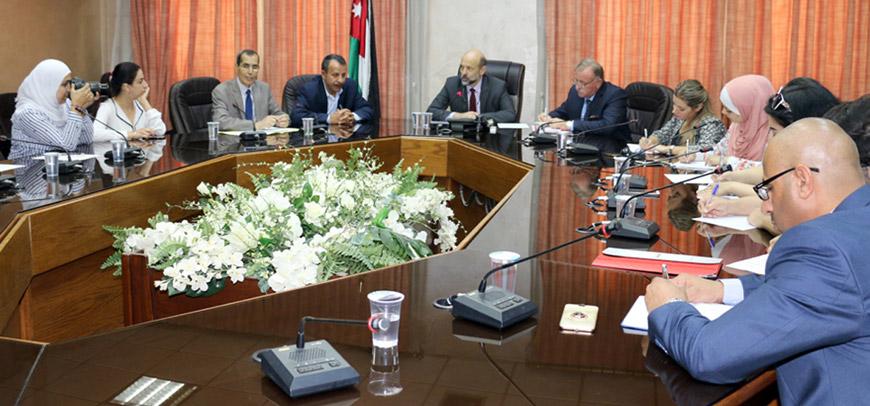You are here
Tawjihi will not be cancelled but modified — Razzaz
By JT - Apr 12,2017 - Last updated at Apr 12,2017

In this file photo, Tawjihi students celebrate success. New regulations under evaluation would allow students who lost all their chances to pass the test to reapply (JT photo)
AMMAN — Education Minister Omar Razzaz on Wednesday said a newly revealed plan to introduce drastic changes to the General Secondary Education Certificate Examination (Tawjihi) was still not official, as consultation were still under way with the Higher Education Ministry and universities.
However, the minister, speaking to Jordan TV’s “This Evening” show, defended the proposed ideas, stressing that Tawjihi would not be cancelled, but rather modified and developed.
He also emphasised that monitoring the test would be as strict as it has been in the past three years, when his predecessor, Mohammad Thneibat, successfully implemented a plan that ended
widespread cheating and violations to relevant regulations.
Among the main points in the new plan, Razzaz noted, is the grading system, underlining a suggestion to calculate the final score out of 1,400 instead of 100 under the existing system.
The new grading system will help universities decide the threshold score to enter a given major. For example, medicine will require a minimum of 1,300, which is equal to 85 per cent under the current regulations, the official explained.
He also confirmed that the development plan would remove an existing system that limits the number of attempts by students to pass the general test. The proposed system allows them to apply to take the test indefinitely.
This means that those who lost their chances to pass Tawjihi in the past years, the minister explained, can sit for the exam anew, but since the ministry’s capacity in terms of the number of students sitting for the test is 200,000, priorities should be set, to be decided according to chronological order, with the most recent applicants having priority over older ones.
On the planned National Curricula Centre, which will be tasked to amend school syllabi independently from the ministry, Razzaz said the agency “will not be working in vacuum,” as it will be subject to checks, balances and oversight by the Audit Bureau and the Civil Service Bureau, while part of its mandate is to observe “religious and national constants”.
The aim of the centre is to ensure good governance, instutionalisation of the curricula preparation and discipline in the process “away from personal moods”, stressing that the final say will be in the hands of the Education Council, which is affiliated with the ministry.
Related Articles
AMMAN – While education experts support the Education Ministry's suggested changes to the General Secondary Education Certificate Examinatio
AMMAN — The Cabinet on Sunday approved the mandating reasons for the by-law of the national centre for developing curricula to be sent to th
AMMAN – The General Secondary Education Certificate Examination (Tawjihi) will witness a “quantum leap” in the coming few years, taking into

















